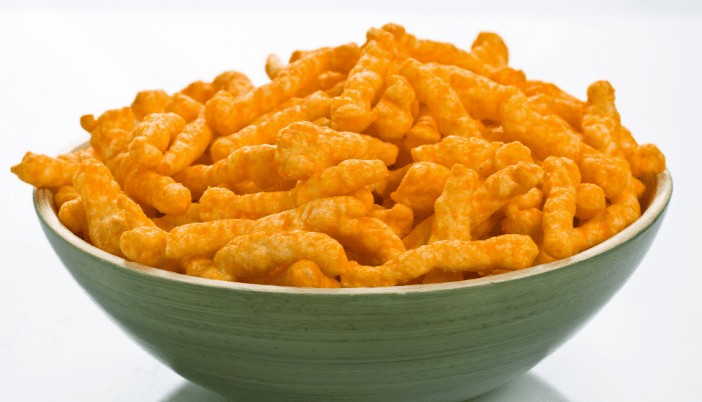Are McDonald’s Fries Vegan? Exploring The Fast Food Favorite’s Place in a Plant-Based Diet
For decades, McDonald’s fries have reigned as a symbol of fast-food indulgence, their salty charm captivating taste buds across generations. However, whether these iconic golden strands align with their values remains a source of ongoing debate for individuals committed to a vegan lifestyle. So, are McDonald’s fries vegan? As with many things in life, the answer is less clear than vegans would like.
McDonald’s Fries Ingredients
At first glance, the McDonald’s fries ingredient list seems relatively benign: potatoes, canola oil, corn oil, dextrose, sodium acid pyrophosphate, citric acid, salt, natural flavor (milk) (added only for the U.S.), and 2% or less of hydrolyzed wheat and corn starch. However, within this seemingly straightforward list lies the crux of the vegan debate:
- Natural Flavor (Milk): This seemingly inconspicuous ingredient throws a wrench into the vegan-friendliness of fries in the United States. This natural flavor contains beef flavoring derived from milk, making the fries non-vegan for individuals adhering to a strict plant-based diet.
- Cross-Contamination: While not a direct ingredient, the potential for cross-contamination with animal products during cooking and preparation presents another concern for vegans. Depending on individual comfort levels, this risk might influence their decision on whether or not to indulge.
Personal Choices
These two key factors create a gray area for vegans. While the absence of gelatin and other prominent animal-derived ingredients technically makes the fries plant-based, the presence of dairy flavoring and the possibility of cross-contamination introduce ethical and dietary considerations:
- Strict Vegan Approach: Individuals upholding a strict plant-based diet, avoiding even trace amounts of animal products, would likely opt for alternative fries devoid of milk derivatives and potential cross-contamination.
- Personal Threshold: For some vegans, the potential ethical concerns with natural flavoring might not be a deal-breaker, especially if other aspects of their diet adhere strictly to vegan principles.
- Traceability: Understanding the sourcing and processing practices behind ingredients like natural flavor can influence decision-making. Some vegans might prioritize choosing brands committed to transparency and minimal risk of cross-contamination.
Vegan Alternatives to McDonald’s Fries
The good news for those craving that satisfyingly salty potato fix is that the vegan fast-food market is booming! Delicious and ethical alternatives to McDonald’s fries offer comparable textures, flavors, and even crispy satisfaction. Some popular options include:
- Sweet Potato Fries: Found at various fast-food chains and restaurants, these naturally sweet fries offer a delicious and nutritious alternative.
- Onion Rings: While not technically fries, crispy onion rings provide a similar salty and satisfying experience. Look for vegan-friendly versions made with plant-based batters.
- Air-Fried Potato Wedges: For a healthier and customizable option, try making your own potato wedges home using an air fryer and your favorite spices.
McDonald’s Vegan Menu
While the iconic McDonald’s fries in the U.S. contain milk-derived flavoring and aren’t vegan, the fast-food giant does offer a few vegan-friendly options and a surprising amount of potential, depending on your comfort level. Here’s a breakdown:
Confirmed Vegan:
- Hash Brown: This hearty breakfast is made with potatoes and vegetable oil.
- Fruit & Maple Oatmeal: Choose plant-based milk for a sweet and satisfying start to your day.
- Side Salad: Customize with vegan salad dressings like balsamic vinaigrette or olive oil and vinegar.
- Apple Slices: A simple and refreshing snack.
Potential (Double-check ingredients and cross-contamination):
- Fruit ‘N Yogurt Parfait: Opt for plant-based yogurt options available at some locations.
- McPlant Burger: This plant-based patty burger might suit some vegans, but be mindful of potential cross-contamination and the cheese slice included by default.
- Soft Serve Ice Cream: Some locations offer plant-based soft-serve, but verify availability and potential shared equipment.
Tips for Eating Vegan Food at McDonald’s
To enjoy a vegan meal with your friends at McDonald’s, you can follow the tips below:
- Customize ingredients: Remove cheese from burgers, request vegan salad dressings, and customize your breakfast sandwiches with vegan-compatible options.
- Explore international options: If traveling, many McDonald’s in other countries like India, Singapore, and Israel offer more extensive vegan selections.
- Consider alternatives: Numerous fast-food chains offer vegan menus or extensive plant-based options. Look for dedicated vegan or vegetarian restaurants for greater peace of mind.
McDonald’s Vegan Fries Around the World
If you travel a lot or have friends in different countries, it is easy to become confused as to whether McDonald’s is vegan. Some countries serve vegan fries, as seen below:
- Europe: Most European countries, including the UK, Ireland, Germany, Belgium, Netherlands, Sweden, Norway, Finland, Spain, Portugal, Austria, Switzerland, and Italy, offer fries cooked in vegetable oil without animal ingredients.
- Latin America: Mexico, Costa Rica, Chile, and Brazil generally offer vegan fries cooked in vegetable oil.
- Asia: Singapore, Hong Kong, Taiwan, and India offer fries that cater to vegetarian and vegan diets.
- Middle East: Israel has fries advertised as suitable for vegans.
A Matter of Values
Whether or not to consume McDonald’s fries rests on your vegan values and dietary priorities. Dairy flavoring and the potential for cross-contamination pose legitimate concerns for some vegans. However, others might find these considerations negligible in the grand scheme of their plant-based journey.





